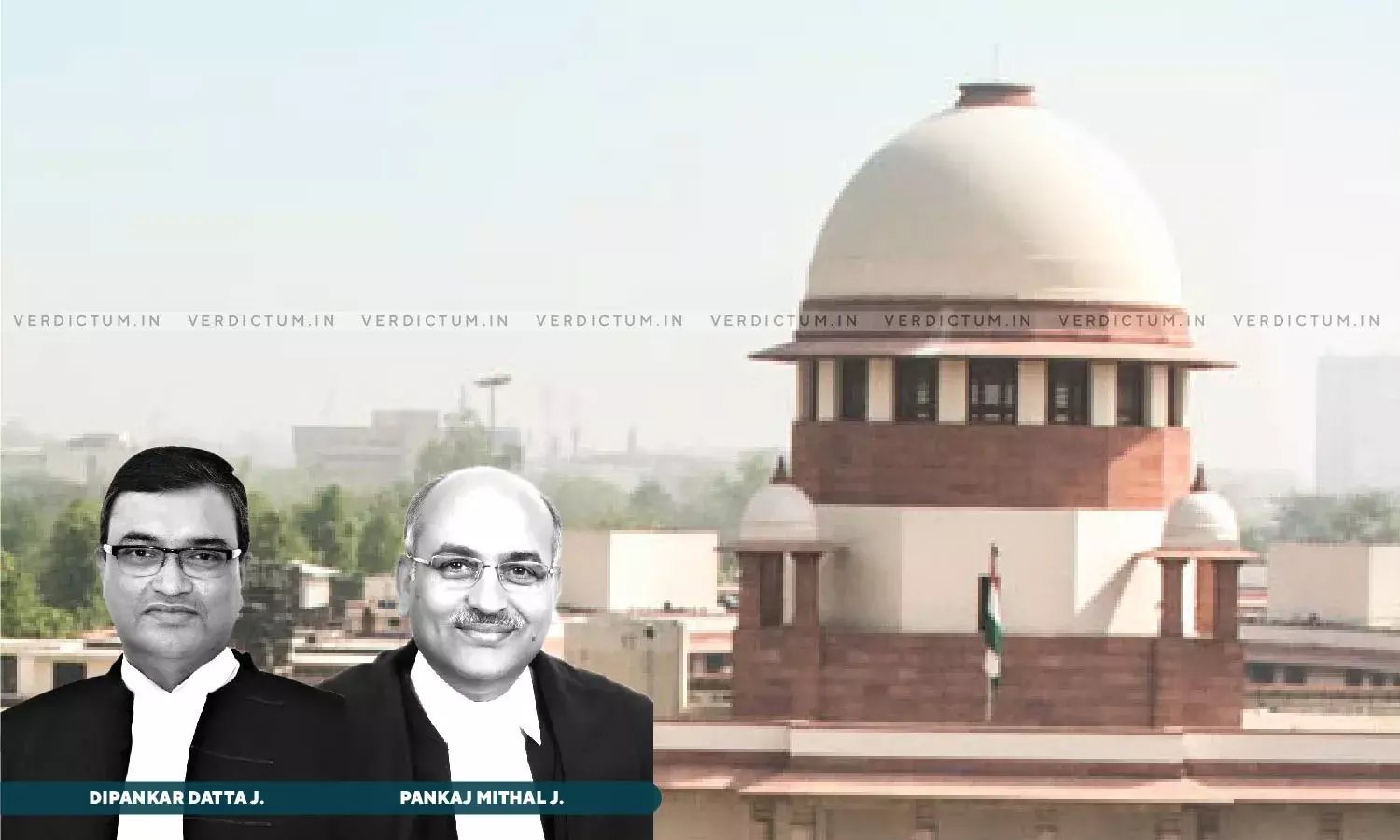Evidence On Record Must Show Involvement Of Person In Commission Of Crime As Per Section 319 CrPC- Supreme Court

The Supreme Court has recently held that as per Section 319 of the Criminal Procedure Code (Cr.PC.), the evidence on record must show the involvement of a person in the commission of a crime and that the said person who has not been arraigned as an accused should face trial together with the accused already arraigned.
The two-Judge Bench comprising Justice Dipankar Datta and Justice Pankaj Mithal observed, “Section 319, Cr. PC, which envisages a discretionary power, empowers the court holding a trial to proceed against any person not shown or mentioned as an accused if it appears from the evidence that such person has committed a crime for which he ought to be tried together with the accused who is facing trial. Such power can be exercised by the court qua a person who is not named in the FIR, or named in the FIR but not shown as an accused in the charge-sheet. Therefore, what is essential for exercise of the power under section 319, Cr. PC is that the evidence on record must show the involvement of a person in the commission of a crime and that the said person, who has not been arraigned as an accused, should face trial together with the accused already arraigned.”
The Bench further held that however, the court holding a trial, if it intends to exercise power conferred by Section 319 of Cr.PC., must not act mechanically merely on the ground that some evidence has come on record implicating the person sought to be summoned and that its satisfaction preceding the order thereunder must be more than prima facie as formed at the stage of a charge being framed and short of satisfaction to an extent that the evidence, if unrebutted, would lead to a conviction.
Advocate Girijesh Pandey appeared on behalf of the appellant while Senior Advocate Singh and Advocate Ankur Prakash appeared on behalf of the respondents.
In this case, an appeal was filed against the order passed by the Allahabad High Court whereby it dismissed the appeal filed by the appellant under Section 14A(1) of the Scheduled Castes and Scheduled Tribes (Prevention of Atrocities Act, 1989 (SC/ST Act). Under challenge in the appeal was a summoning order passed by the relevant Special Court in exercise of the power conferred by Section 319 of Cr.PC.
An FIR was registered under Sections 419, 420, 323, 406, and 506 of the Indian Penal Code and 3(1)(r) & (s) of the SC/ST Act based on the information furnished by the complainant. The accusations were levelled at persons of having assaulted and abused the complainant and his wife, amounting to the commission of offences punishable under the aforesaid provisions.
The Supreme Court in view of the above facts noted, “… the order of the Special Bench dated 16th October, 2021 and the impugned order of the High Court dated 1st June, 2022 affirming it cannot be faulted. … In so far as the points regarding delay in registration of the FIR, material contradiction in the versions of the complainant and his wife, absence of any public witness as well as the circumstances that the complainant and his wife were known to the appellant since 2015 are concerned, the same are left open to be urged by the appellant in course of the proceedings before the Special Court.”
The Court also said that the Special Court is encouraged to expedite the trial but, in the process, it shall proceed uninfluenced by reason of its order under Section 319 of Cr.PC being upheld by the High Court and the Apex Court and that the points raised on behalf of the appellant be given the consideration the same deserve.
Accordingly, the Apex Court dismissed the appeal.
Cause Title- Jitendra Nath Mishra v. State of U.P. & Anr.


